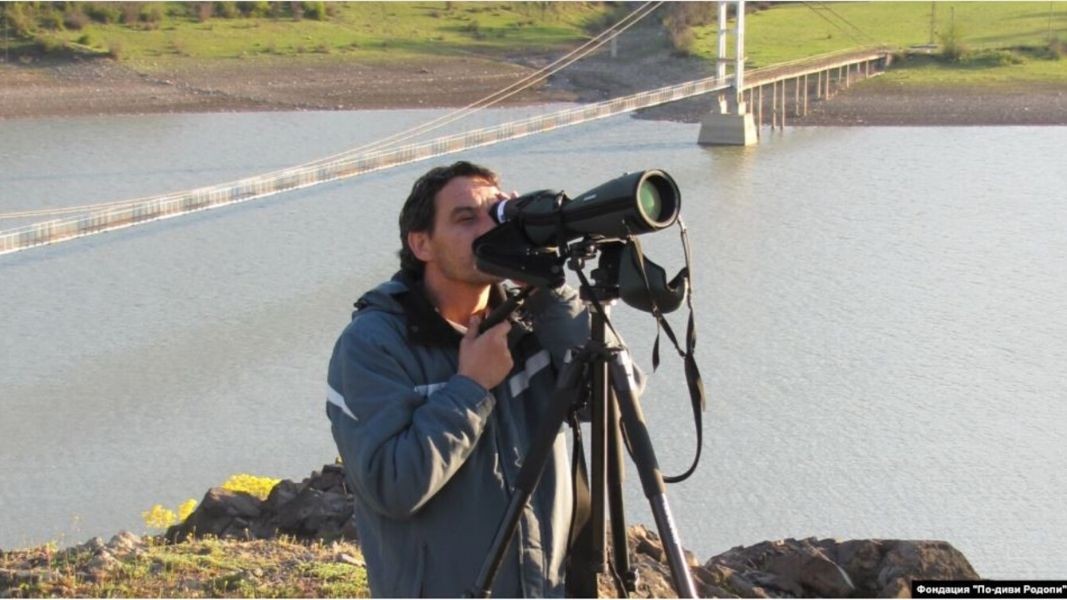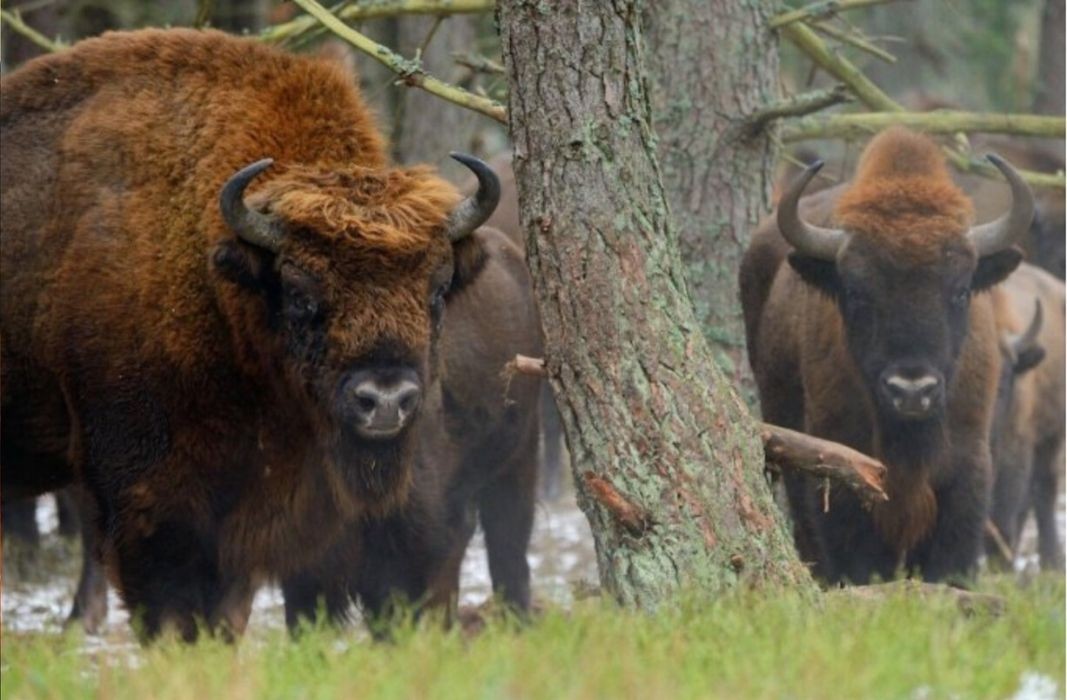In ancient times aurochs were one of the widespread species inhabiting the Thracian lands, but with the advancement of civilization and deforestation, their populations began to decline. Until a day came at the beginning of the past century on which the very last surviving specimen of this animal species disappeared from the face of the Old Continent.
A herd of seven European aurochs has been living freely for several months in the Studen Kladenets hunting park in Bulgaria’s Rhodope Mountain. Gradually, the aurochs, these large wild oxen, return to the wild thanks to efforts to restore them in their natural environment with the help of their few surviving specimen in European zoos. The project is being implemented by Rewilding Europe organization and the Union of Hunters and Fishermen in Bulgaria.
In 2013, the first animals arrived from breeding centers in Germany. They spent several years in an enclosed space, adapting to the new environment. In the meantime, the first young auroch was born. Today, fences have been removed and aurochs enjoy a free life in the wild.

“Aurochs are already adapting, but in order to say that they have fully adapted to nature, it takes at least one calendar year and the animals have to experience difficulties each season”, says Hristo Hristov, a representative for Bulgaria of the Pan-European Wildlife Restoration Initiative Rewilding Europe. “In order for a species to be restored, in principle, animals born in nature need to be present and they, in turn, need to create a generation. However, in the case of the European aurochs, this process will be long because they reach puberty at the age of four and give birth at five years of age at the earliest.”

Currently, there are more aurochs in the enclosure, which will sooner or later be released. First, several female animals will be released into the wild in order to increase their population.
"So far, we are not letting the aurochs that are at liberty do their own thing and we help them," the environmentalist explains. “Our goal is to keep them in the farm so that we can monitor their condition and behaviour. And we always give them something small to eat, even though they manage to find food on their own. European aurochs graze grass, eat branches of bushes and trees, pick mosses from stones.”

The return of the European aurochs is an essential part of the restoration of wildlife in the Rhodopes. According to Hristo Hristov, almost all species of extinct animals have already been recovered in the eastern part of the mountain - among them are wild horses, red deer and vultures.
"We expect that the return of the aurochs will have a positive impact as they complete the picture of large herbivores, and each of these animals has its own ecological niche," he adds. “But there is also room in this picture for the imperial eagle, the wheatear,the European roller, the sousliks, and for many more species of butterflies and lizards. So we hope with the common help of the large herbivores such as aurochs, red deer, stags, we will have much more biodiversity."
English Rossitsa Petcova
Photos: StaffanWidstrand / Rewinding Europe and Wilder Rhodopes FoundationThe Bulgarian Cultural Centre "St Cyril" will be officially opened in Accra - the capital of Ghana, sources told Radio Bulgaria. The inauguration of the centre, which is located at 10 Kakramadu Road Cantonments, Accra, will take place on June 25 at..
The regional ethnographic museum in Plovdiv opens its doors for the 16th edition of the Week of Traditional Crafts, the organizers report. The opening is on June 24 (Enyovden) - honored in Bulgarian folk traditions as the day of..
Bulgarian cuisine is ranked 14 th out of all national cuisines in Europe in the prestigious TasteAtlas rankings, BNR-Varna reports. The cuisines are rated every year on the basis of points given by the website’s users. Bulgaria is given an average..
Brazil is perhaps one of the least popular destinations for Bulgarians today. Although the standard of living in Brazil is not very high, it is usually..
The Ukrainian Educational Hub in Bulgaria marked the end of its second school year. We recall that the center offers all-day training..
26 June is a day when people around the world join forces to fight the global problem of drug addiction. On the occasion of the International Day against..

+359 2 9336 661
